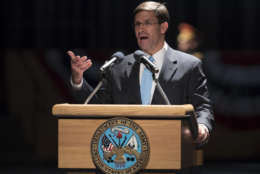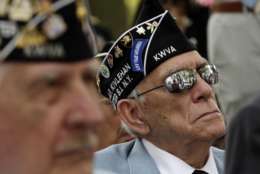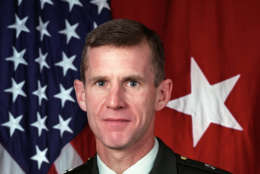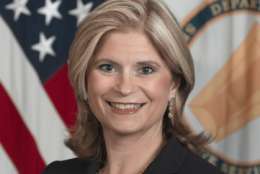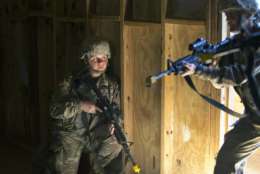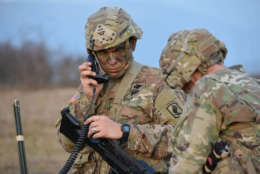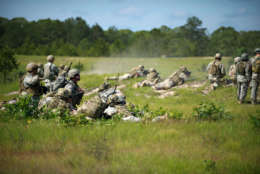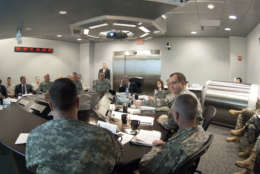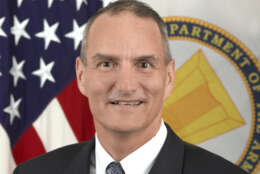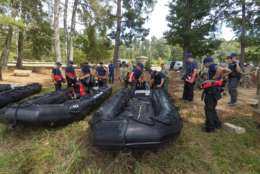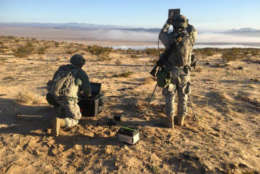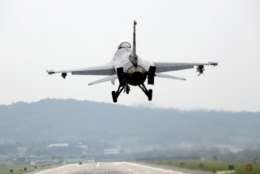Army
-
Mark Esper, secretary of the Army, said the Office of Personnel Management is not made up of bad people, but that the Army could better handle civilian hiring on its own.
November 14, 2018 -
For military veterans, the option of blended retirement sparks a lot of questions, or at least it should. Service members have to make regular contributions to the Thrift Savings Plan.
November 12, 2018 -
On this EXTRA episode, Stanley McChrystal, retired US Army General and co-author of Leaders: Myth and Reality, discusses what leadership actually means, and why it isn't just a magic power doled out by a rare great man.
November 12, 2018 -
Kathleen Miller has been inducted into the National Academy of Public Administration and she joined Federal Drive with Tom Temin to talk more about her civil service career.
November 09, 2018 -
Since April, the Army has cut more than 60 training and administrative requirements. Top official say the goal is to redirect time and resources into readiness and modernization.
November 09, 2018 -
As the Army maps out a new architecture for tactical networks, it's trying to balance technical flexibility against a one-size-fits-all approach.
November 01, 2018 -
Federal civilian employees are delaying retirement until an average age of 61.8 years, continuing a three year trend recorded by the Office of Personnel Management.
October 17, 2018 -
The Army is still figuring out how to deal with soldiers who are nondeployable for a year or more.
October 11, 2018 -
Army says it wants industry ideas to build 'installations of the future' from monitoring energy usage, to family life on the base.
October 11, 2018 -
Only 20 percent of the Army's cyber teams are made up of civilians. The Army is analyzing whether that's the right ratio in an environment where every uniformed servicemember is expected to be able to deploy to combat.
October 09, 2018 -
The Army names a new deputy CIO, while the Air Force picks its second-ever chief data officer.
October 01, 2018 -
Appeals court says the Army acted arbitrarily and capriciously when it decided to pay contractors to build a new intelligence IT system, rather than buying a commercially-available one.
September 17, 2018 -
More than 3,800 civilian federal employees, and more than 9,700 military personnel are currently deployed to help respond to Hurricane Florence.
September 14, 2018 -
To advance the state-of-the art in using artificial intelligence for electronic warfare, the Army's Rapid Capabilities Office turns to a nontraditional "challenge" process.
September 13, 2018 -
Air Force chief says the service is likely to restructure its Pentagon offices and numbered forces to combine cyber, ISR and electronic warfare.
August 31, 2018

